Medical Affairs plays a pivotal role in driving success and advancing patient care. Recognising the significance of this function, pharmaceutical companies expect Medical Affairs to assume a leadership position.
Chris Toller, Medical Affairs expert and faculty member of CELforPharma’s The Medical Affairs Excellence Course, highlights 6 domains in which Medical Affairs managers must excel to rise to this challenge of becoming true co-leaders. The transformative journey of Medical Affairs leadership offers unique opportunities, but also presents the challenge of balancing diverse demands and responsibilities. Medical Affairs managers are integral to both internal and external stakeholders, making their role even more vital, but also more complex.
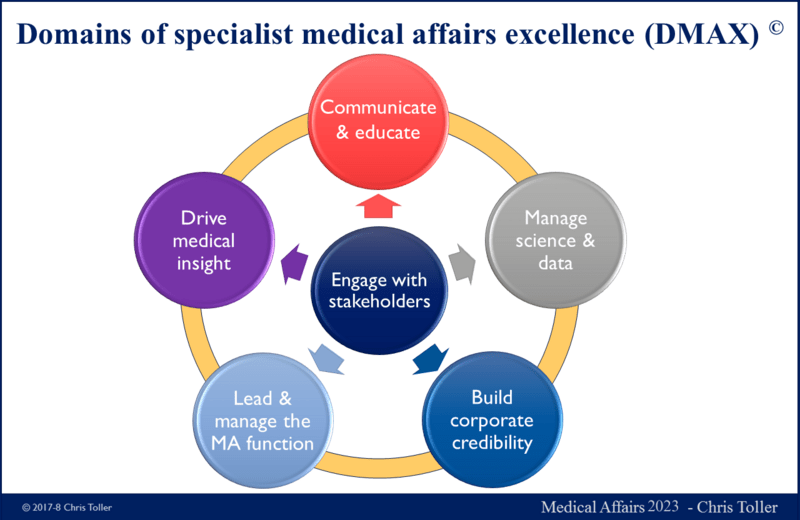
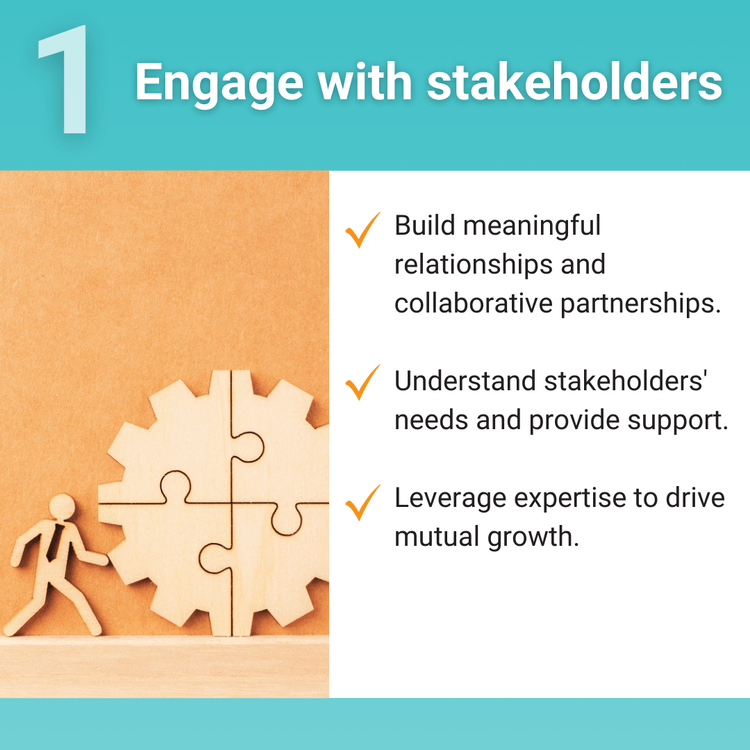
1. Engage with stakeholders
The foundation of Medical Affairs excellence lies in engaging with stakeholders.
By fostering meaningful relationships and forging collaborative partnerships, Medical Affairs professionals can proactively contribute to the success of their organisations.
This involves understanding the needs of stakeholders, providing support, and leveraging their expertise to drive mutual growth.
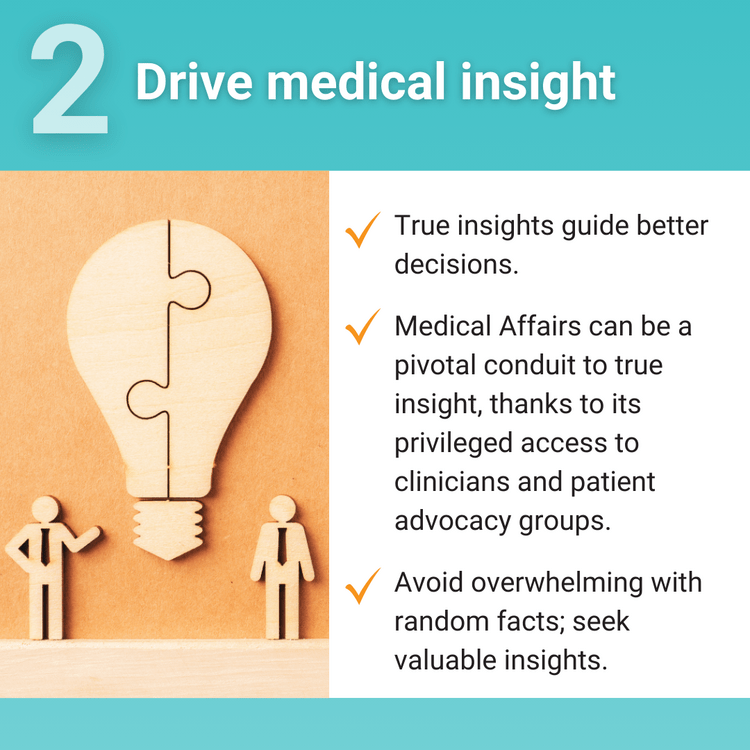
2. Drive medical insight
Driving medical insight is the second domain highlighted by Chris Toller.
True insight is critical to guiding better decisions throughout organisations, and medical affairs can be a pivotal conduit, thanks to its privileged access to clinicians and patient advocacy groups.
There is a risk, however, that the desire to gather more and more medical insights and to capture them as yet another KPI, will erode their value. True insights are rare. They can’t be mined like seams of coal, but must be sought out like diamonds. If you target people to find more and more insights, don’t be surprised if you end up with files of random facts that don’t provide the value the organisation really needs.
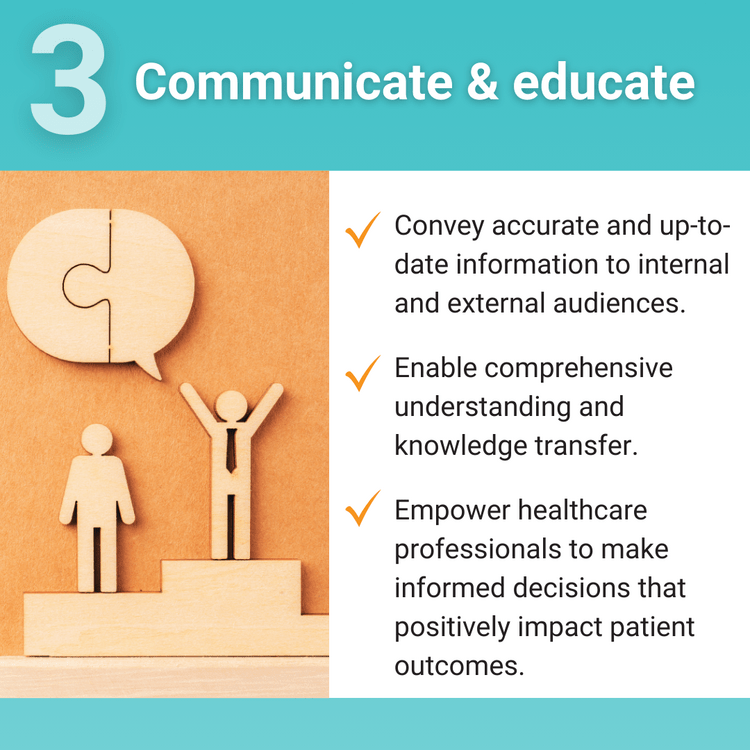
3. Communicate and educate
The ability to communicate and educate effectively is the third domain critical to the success of Medical Affairs.
As a bridge between background scientific and healthcare providers, Medical Affairs professionals must convey accurate and up-to-date information to both internal and external audiences.
By enabling comprehensive understanding and facilitating knowledge transfer, they empower healthcare professionals to make informed decisions that positively impact patient outcomes.
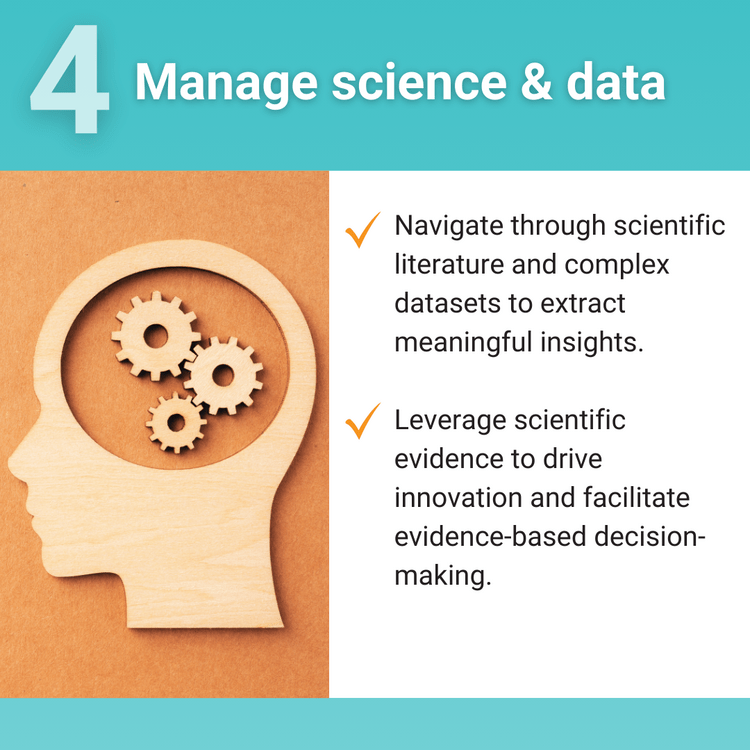
4. Manage science and data
In today's data-driven world, the fourth domain of managing science and data is of paramount importance for Medical Affairs managers. They must navigate through vast amounts of scientific literature and complex datasets to extract meaningful insights.
By leveraging scientific evidence, Medical Affairs professionals drive innovation and facilitate evidence-based decision-making, ultimately enhancing patient care and treatment outcomes.
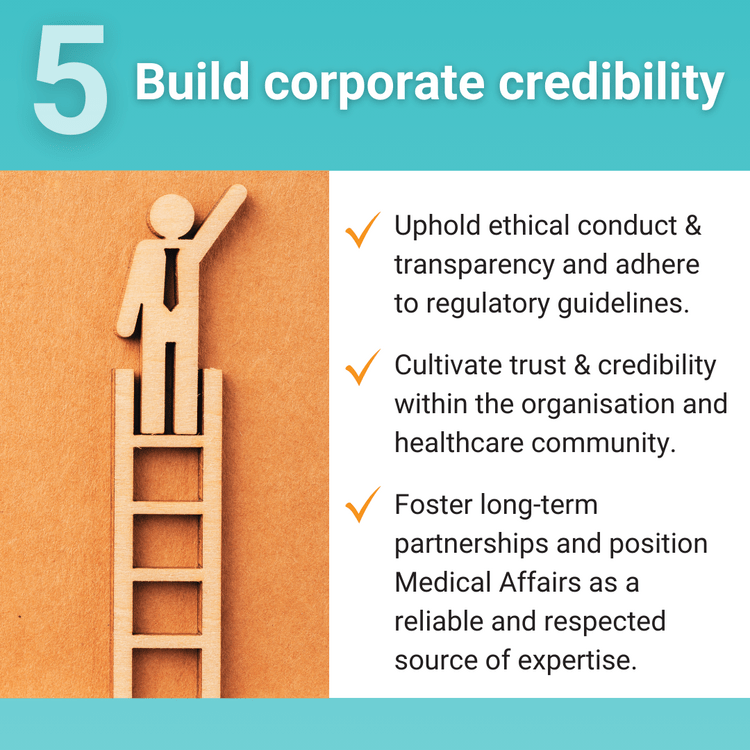
5. Build corporate credibility
The fifth domain emphasized by Chris Toller is building corporate credibility.
Medical Affairs professionals must uphold ethical conduct, transparency, and adherence to regulatory guidelines to cultivate trust and credibility within their organisations and the broader healthcare community.
This serves as a foundation for effective collaboration, fostering long-term partnerships, and positioning Medical Affairs as a reliable and respected source of expertise.
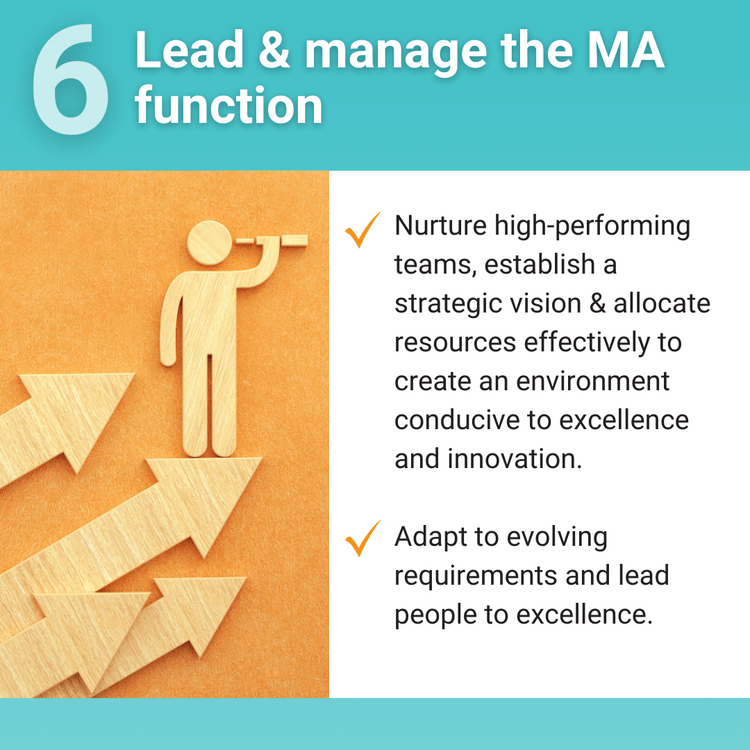
6. Lead and manage the MA function
Last but certainly not least, Medical Affairs managers must possess the acumen to lead and manage their function.
By nurturing high-performing teams, establishing a strategic vision, and effectively allocating resources, they create an environment conducive to excellence and innovation.
Medical affairs has evolved from a discipline driven by managing projects to one that is all about leading people. If the requirements on medical affairs teams is changing, then those teams and the people who lead them, must adapt and flourish.
To better define the role of Medical Affairs and showcase its true value, Chris identified 40 individual tasks within these six domains. By embracing this comprehensive approach, Medical Affairs professionals can clarify their responsibilities and address the challenge of defining key performance indicators (KPIs) that accurately reflect their impact. Merely measuring volume of activity falls short in capturing the true value of Medical Affairs; instead, KPIs should reflect the difference made in patient care, stakeholder satisfaction, and overall organisational success.
